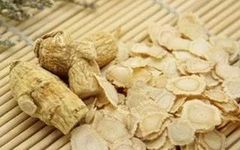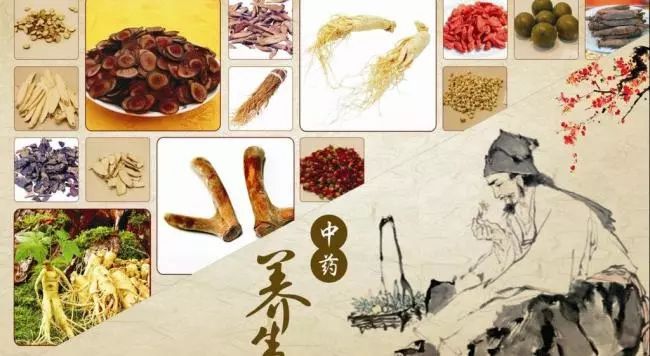
With the changes in modern lifestyles, especially the prevalence of staying up late, the resulting depletion of jinye (body fluids) has shown a trend of affecting younger individuals. The depletion of jinye refers to the reduction in the quantity of body fluids, leading to insufficient nourishment of internal organs and external surfaces, resulting in a series of pathological states characterized by dryness. The body relies on jinye for nourishment, from internal organs to the skin. Factors such as exposure to dry heat pathogens, excessive emotional stress leading to fire, weakness of the spleen and stomach resulting in insufficient production of jinye, or excessive consumption of spicy foods can all lead to insufficient generation or excessive loss of jinye. Clinically, various symptoms may present, such as dryness of the lips, skin, and blood vessels, leading to symptoms like dry throat, thirst, dry skin, and brittle hair. In TCM, the treatment for jinye depletion generally focuses on nourishing jinye. Here, we will briefly introduce commonly used TCM herbal decoctions with nourishing yin properties. Individuals experiencing the aforementioned symptoms can use these herbs as tea or decoctions to alleviate jinye depletion and improve their health quality.
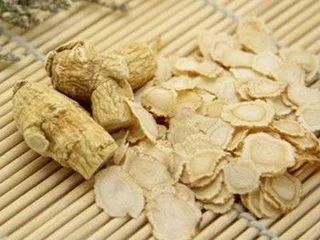
Xi Yang Shen (American Ginseng): Bitter and slightly sweet, cold in nature, it enters the heart, lung, and kidney meridians. Its functions include tonifying qi and nourishing yin, clearing heat, and generating fluids. It is suitable for symptoms of qi and yin deficiency with heat, such as cough with blood-streaked phlegm due to yin deficiency and excess fire, shortness of breath due to damage to qi and yin from febrile diseases, fatigue, thirst, and dryness of the mouth and tongue due to insufficient jinye, as well as blood in the stool due to intestinal heat. It can be used alone as a decoction for insufficient jinye and dry mouth.
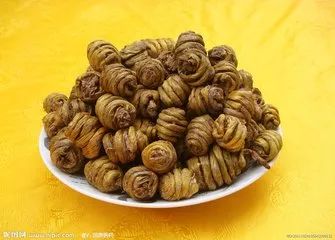
Shi Hu (Dendrobium): Sweet and slightly cold, it enters the stomach and kidney meridians. Its functions include benefiting the stomach and generating fluids, nourishing yin, and clearing heat. It is suitable for febrile diseases that damage jinye, with symptoms like a red tongue and thirst, or diabetes, as well as yin deficiency with jinye depletion and false heat symptoms. It is known for nourishing kidney yin, thus benefiting vision and strengthening the lower back and knees. Fresh Shi Hu has a stronger ability to clear heat and generate fluids, making it suitable for febrile diseases that damage jinye; while dried Shi Hu is used for general yin deficiency with a dry tongue.
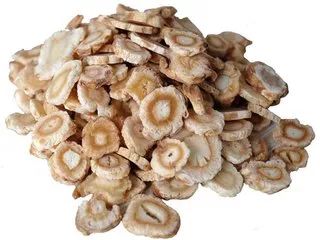
Bei Sha Shen (North American Ginseng): Sweet, slightly bitter, and slightly cold, it enters the lung and stomach meridians. Its functions include nourishing yin, clearing the lungs, and benefiting the stomach to generate fluids, making it an excellent choice for clearing heat and nourishing yin. Bei Sha Shen can clear lung heat and nourish lung yin, suitable for symptoms of lung heat and yin deficiency, such as cough with blood; it also nourishes stomach yin and generates fluids, commonly used for dry mouth and excessive thirst due to stomach yin deficiency, lack of appetite, constipation, red tongue with little coating, and symptoms like stomach pain, bloating, and dry retching.
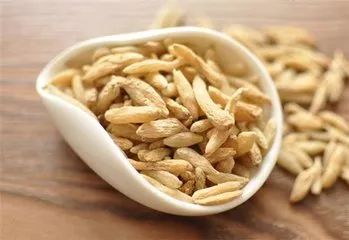
Mai Dong (Ophiopogon): Sweet and slightly bitter, slightly cold, it enters the stomach, lung, and heart meridians. Its functions include nourishing yin, moistening the lungs, benefiting the stomach to generate fluids, and clearing the heart to relieve irritability. It is suitable for symptoms of lung yin deficiency with dry cough and sticky phlegm, or cough due to heat with blood, dry mouth and thirst due to stomach yin deficiency, as well as heart yin deficiency leading to irritability and insomnia. Additionally, it can be used for febrile diseases that damage yin, and for constipation due to intestinal dryness, having a nourishing and moistening effect on the intestines.
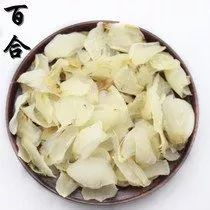
Bai He (Lily Bulb): Sweet, bland, and slightly cold, it enters the lung, heart, and stomach meridians. Its functions include nourishing yin, moistening the lungs, and calming the heart and spirit. It is suitable for cough due to lung heat, cough with blood due to fatigue, irritability and palpitations in the late stages of febrile diseases, insomnia with vivid dreams, etc.; additionally, it can nourish stomach yin and clear stomach heat, used for stomach pain due to stomach yin deficiency with heat.
Image source from the internet.
Article provided by the Clinical Herbal Medicine Department.

